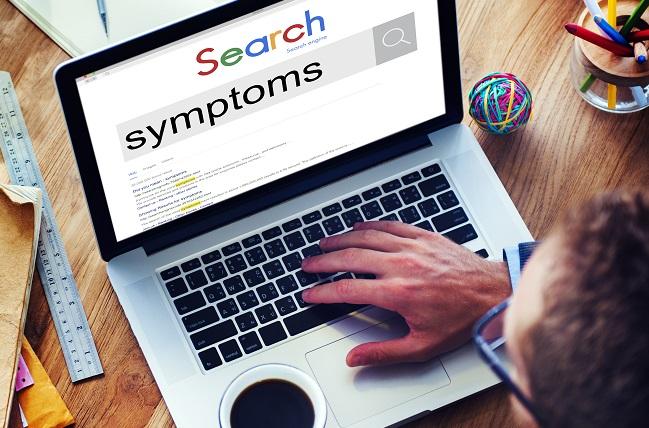Googling of Cardiac Symptoms Tracks With Hospital Admissions for Coronary Disease
Given the honesty with which people ask health questions of search engines, researchers suggest these data should be mined for epidemiologic studies.

Patients seem to be turning to online search engine tools as a primary source of information even for serious conditions like heart disease, according to a new study. As such, clinical and epidemiological researchers should be mining these publicly available data for future endeavors, the researchers say.
The honesty with which people type inquiries into Google, especially when it comes to health, is striking, according to lead investigator Conor Senecal, MD (Mayo Clinic, Rochester, MN). So the degree to which the search database matches “real world epidemiology” is high, he told TCTMD. “The way we deal with our technology now, we kind of ask questions to that first, it seems like.”
The two-part study, which will be presented in a poster session by Senecal this Saturday at the American College of Cardiology 2018 Scientific Session in Orlando, FL, sourced search data from the Google Trends database as well as publicly available hospitalization data from the Centers for Disease Control and Prevention. Specifically, the researchers looked at searches with “chest pain + angina + chest discomfort + chest pressure” in the United States between 2012 and 2014, comparing that by state with patients who were hospitalized for coronary heart disease. Also, they assessed seasonal differences in searches across the United States, United Kingdom, and Australia between 2012 and 2017.
Within the United States, search frequency for coronary heart disease terms matched the prevalence of real-world cardiac hospitalizations by state. Additionally, seasonal and monthly variation in searches was seen across all three countries (P < 0.0001 for all). Searches tended to decrease between May and August in both the United States and United Kingdom, and a similar trough was seen in Australia between the spring/summer months of November through February. Searches also tended to increase by 50-80% during 6-8 AM local time, which is consistent with prior research suggesting that MIs are more common in the morning hours, and in the winter months.
The implications of this study are twofold, Senecal explained. “One, from kind of a research perspective, the Google Trends tool specifically is an open tool that's available for everybody,” he said. “It's free, and provides just a huge volume of data, and while it's certainly not at clinical research standards of those types of data sets, I think it provides a pretty interesting way to quickly test hypotheses that might be reasonable for more rigorous study.”
On the other hand, this information “helps to provide evidence that patients are looking for very serious conditions online and so we should take seriously the results that they are going to be seeing as they search for those things, because it could have very big impacts on their outcomes,” Senecal observed.
Of course, there are limitations to this data source, he said. Primarily, “you can't understand the particular motives of individuals that are searching for these things, and you can't directly tie it with outcomes for those people,” Senecal noted. “It's anonymized data, so obviously we're just looking at kind of the volume in general, and we don't know how many of these people actually had these symptoms and presented to a hospital or had these symptoms and ended up having specifically coronary artery disease or things like that.”
Still, relevant comparisons can be drawn from online searches, and this is only the beginning of their use in clinical research, he predicted. “There's probably a big window to look at more chronic disease states through this,” Senecal concluded.
Yael L. Maxwell is Senior Medical Journalist for TCTMD and Section Editor of TCTMD's Fellows Forum. She served as the inaugural…
Read Full BioSources
Senecal C. Temporal and geographic correlation between coronary artery disease prevalence and search engine queries. To be presented at: ACC 2018. March 10, 2018. Orlando, FL.
Disclosures
- Senecal reports no relevant conflicts of interest


Comments